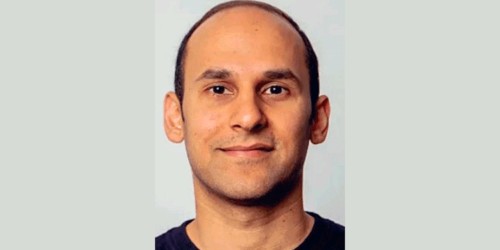The Federal Government, on Monday, contacted the International Criminal Police Organisation and issued an arrest warrant for the apprehension of one of the detained executives of a global crypto-currency firm, Binance, Nadeem Anjarwalla, who escaped from lawful custody on Friday.
Additionally, while his colleague was still being held, Anjarwalla, a suspect in the investigation into Binance’s operations in Nigeria, escaped using a Kenyan passport, according to information obtained from the Office of the National Security Adviser (NSA).
The escapee Binance official, who has British and Kenyan nationalities, escaped from Abuja through a Middle East airliner, as his firm in Nigeria confirmed that Anjarwalla was no longer in the country, adding that the company would cooperate with security agencies.
The escape shocked security agencies, as they revealed that the fleeing executive was kept in a ‘safe house’ guarded by soldiers, adding that the security guards on duty had been detained.
The Office of the National Security Adviser confirmed the escape of Anjarwalla in a statement issued in Abuja on Monday by the Head of its Strategic Communication, Zakari Mijinyawa, who stated that preliminary investigation showed that the escapee fled Nigeria using a smuggled international passport.
He noted that efforts were ongoing to arrest the suspect.
The statement read, “The Office of the National Security Adviser confirms that Nadeem Anjarwalla, a suspect in the ongoing criminal probe into the activities of Binance in Nigeria, has escaped from lawful custody on Friday, March 22, 2024.
“Upon receiving this report, this office took immediate steps, in conjunction with relevant security agencies, Ministries, Departments, and Agencies, as well as the international community, to apprehend the suspect.
“Security agencies are working with Interpol for an international arrest warrant on the suspect. Preliminary investigation shows that Mr Anjarwalla fled Nigeria using a smuggled passport.”
Mijinyawa noted that the personnel responsible for the custody of Anjarwalla had been arrested, adding that investigations were ongoing to unravel the circumstances surrounding his escape.
“The personnel responsible for the custody of the suspect have been arrested, and a thorough investigation is ongoing to unravel the circumstances that led to his escape from lawful detention.
“Recall that the Federal Government of Nigeria, like other governments around the world, has been investigating money laundering and terrorism financing transactions perpetrated on the Binance currency exchange platform.
“Until his escape, Nadeem Anjarwalla, who holds British and Kenyan nationalities and served as Binance’s Africa Regional Manager, was being tried by Nigerian courts.
“The suspect escaped while under a 14-day remand order by a court in Nigeria. He was scheduled to appear before the court again on April 4, 2024,” the statement added.
The ONSA spokesperson urged Nigerians and the international community to help with information that could lead to the arrest of the suspect.
Mijinyawa said, “We urge the Nigerian public and the international community to provide whatever information they have that can assist law enforcement agencies to apprehend the suspect.”
Financial Times had on February 28, 2024, reported that two executives of the company were arrested and detained after they flew into the country as a result of a ban on their website.
On March 12, 2024, the FT reported that the EFCC asked Binance to share data on its 100 top users in Nigeria as well as all transaction history for the past six months.
According to the report, the request is at the centre of negotiations between Binance and Nigeria.
It was gathered that the escaped Binance executive fled Nigeria on his smuggled Kenyan passport.
Anjarwalla’s escape from custody last Friday steered controversy across the country since the news broke Monday morning.
The embattled Binance executive who is both a citizen of the United Kingdom and Kenya, had had his British passport seized by the Nigerian authorities.
However, the spokesperson for the Office of the NSA, Mijinyawa, revealed that Anjarwalla fled the country using his Kenyan passport.
Responding to an enquiry on the particular country’s passport used by Anjarwalla to escape from Nigeria, Mijinwaya said, “Kenyan. His other passport remains with the Nigerian authorities.”
Meanwhile, impeccable source said that Anjarwalla and his colleague, Tigran Gambaryan, were detained in a “safe house” guarded by heavily armed soldiers.
It was further revealed that the embattled crypto-currency gurus were detained on the order of the National Security Adviser, Nuhu Ribadu.
The high-placed security sources also noted that some of the military personnel guarding the safe house had been detained.
“The escape of Mr Anjarwalla from custody came as a surprise to many of us in the security community. He wasn’t detained by the EFCC or the DSS, he and his colleague were detained in a ‘safe house’ guarded by heavily armed soldiers of the Nigerian Army, on the order of the NSA, Nuhu Ribadu,” one of the sources revealed.
Another source who also spoke on the condition of anonymity, said, “The soldiers who were on duty on the day he escaped have been detained and are being interrogated over the matter.
“The Office of the National Security Adviser is the one coordinating the poet, while other relevant security agencies, the EFCC, DSS, police, FIRS, are carrying out their own independent investigations and have been questioning the Binance executives at the ‘safe house’ which is being guarded by the military.”
However, the Nigerian Immigrations Service and the Nigeria Police Force, were silent on the development.
The spokesperson for the NIS, Dr Forum Aridegbe, and the Force Public Relations Officer, Olumuyiwa Adejobi, did not respond to inquiries concerning how Anjarwalla got a smuggled passport, and also on plans to inform the Kenyan and British police concerning his whereabouts.
When contacted to tell what would be done to military officials who guarded the house from where the Binance boss escaped, the Director of Army Public Relations, Maj Gen. Onyema Nwachukwu, replied “I currently do not have information about soldiers reportedly guarding the said escapees. Will revert if I do.”
Anjarwalla, 38, escaped on Friday, March 22, 2024 from the Abuja guest house where he and his colleague were detained after guards on duty led him to a nearby mosque for prayers in the spirit of the ongoing Ramadan fast.
Authorities are also said to be working to unravel his intended destination in a bid to get him back into custody.
An Immigration official said the Binance executive fled Nigeria on a Kenyan passport. He, however, said authorities were trying to determine how he obtained the passport, given that he had no other travel document (apart from the British passport) on him when he was taken into custody.
Another source said the two officials were held at a “comfortable guest house” and allowed many rights, including the use of telephones, a privilege Anjarwalla is believed to have exploited to plot an escape.
Anjarwalla and Tigran Gambaryan, a US citizen overseeing financial crime compliance at the crypto exchange platform, were detained upon their arrival in Nigeria on February 26, 2024.
A criminal charge was filed against the two executives before a Magistrate Court in Abuja. On February 28, 2024, the court granted the Economic and Financial Crimes Commission an order to remand the duo for 14 days.
The court also ordered Binance to provide the Nigerian government with the data/information of Nigerians trading on its platform.
Following Binance’s refusal to comply with the order, the court extended the remand of the officials for an additional 14 days to prevent them from tampering with evidence. The court then adjourned the case till April 4, 2024.
Also on March 22, the Nigerian government approached the Federal High Court in Abuja and slammed another four-count charge on Binance Holdings Limited, Anjarwalla, and Gambaryan, accusing them of offering services to subscribers on their platform while failing to register with the Federal Inland Revenue Service to pay all relevant taxes administered by the service.
And in so doing, they committed an offence, contrary to and punishable under Section 8 of the Value Added Tax Act of 1993 (as Amended).
The defendants were also accused of offering taxable services to subscribers on their trading platform while failing to issue invoices to those subscribers to determine and pay their value-added taxes and, in so doing, committed an offence contrary to and punishable under S.29 of the Value Added Tax Act of 1993 (as amended).
Count three of the charges accused the three defendants of offering services to subscribers on their Binance trading platform for the buying and selling of cryptocurrencies and the remittance and transfer of those assets while failing to deduct the necessary Value Added Taxes arising from their operations and thereby committing an offence contrary to and punishable under Section 40 of the Federal Inland Revenue Service Establishment Act 2007 (as amended).
The last count of the charges wants the defendants punished for allegedly aiding and abetting subscribers on their Binance trading platform to unlawfully refuse to pay taxes or neglect to pay those taxes and, in so doing, committing an offence contrary to and punishable under the provisions of S.94 of the Companies Income Tax Act (as amended).
The Nigerian government had, in the past three months, been cracking down on suspected money launderers and terrorism financiers, some of whom it alleged were using the Binance platform for criminal activities.
The Nigerian government said over $21.6bn was traded by Nigerians whose identities were concealed by Binance.
The government also claimed its investigations revealed that unscrupulous elements were using Binance for money laundering, terrorist financing, currency speculation, and market manipulation, distorting the Nigerian economy and weakening the naira against other currencies.
The detention of Binance officials in Nigeria began months after the crypto exchange platform pleaded guilty and agreed to pay $4.3bn to settle criminal money laundering charges levied by the US Department of Justice.
Binance founder and CEO Changpeng Zhao, also known as CZ, pleaded guilty and agreed to resign. His criminal trial has been postponed to April 30, 2024, by a US court.
Binance, the global cryptocurrency exchange, confirmed on Monday that its executive, Anjarwalla, was no longer in Nigerian custody.
The crypto exchange said its concern continues to be the safety and well-being of its employees, and it is actively collaborating with Nigerian authorities to swiftly resolve the matter.
“We were made aware that Nadeem is no longer in Nigerian custody. Our primary focus remains on the safety of our employees, and we are working collaboratively with Nigerian authorities to quickly resolve this issue,” It said in the emailed response.
However, it did not provide details on how the executive left Nigerian custody.
JNPR, the public relations agency for Binance, when reached out to (by The Punch) for confirmation on the matter said “I am currently seeking feedback from my clients. Unfortunately, I can’t share any information at the moment. As soon as I receive any updates, I will let you know”.
Authorities are now scrambling to ascertain Anjarwalla’s whereabouts and the specifics of his escape, with investigations underway to determine his intended destination.
Last week, the families of the executives said they would remain in detention for at least two more weeks in Nigeria.
The duo appeared in court for the first time on Wednesday, even though they were not charged with a crime.
This detention follows Nigeria’s recent crackdown on various cryptocurrency trading platforms.
On March 8, the exchange announced its decision to cease its naira-to-dollar exchange services in Nigeria due to a dispute with Nigerian authorities, who accused the platform of manipulating the country’s foreign exchange rate.
The Central Bank of Nigeria Governor, Yemi Cardoso, said that over $26bn in illicit funds had transited through the platform in the previous year.
Credit: The Punch

 BIG STORY5 days ago
BIG STORY5 days ago
 BIG STORY2 days ago
BIG STORY2 days ago
 BIG STORY1 day ago
BIG STORY1 day ago
 BIG STORY2 days ago
BIG STORY2 days ago
 BIG STORY4 days ago
BIG STORY4 days ago
 BIG STORY2 days ago
BIG STORY2 days ago
 BIG STORY1 day ago
BIG STORY1 day ago
 BIG STORY1 day ago
BIG STORY1 day ago
























